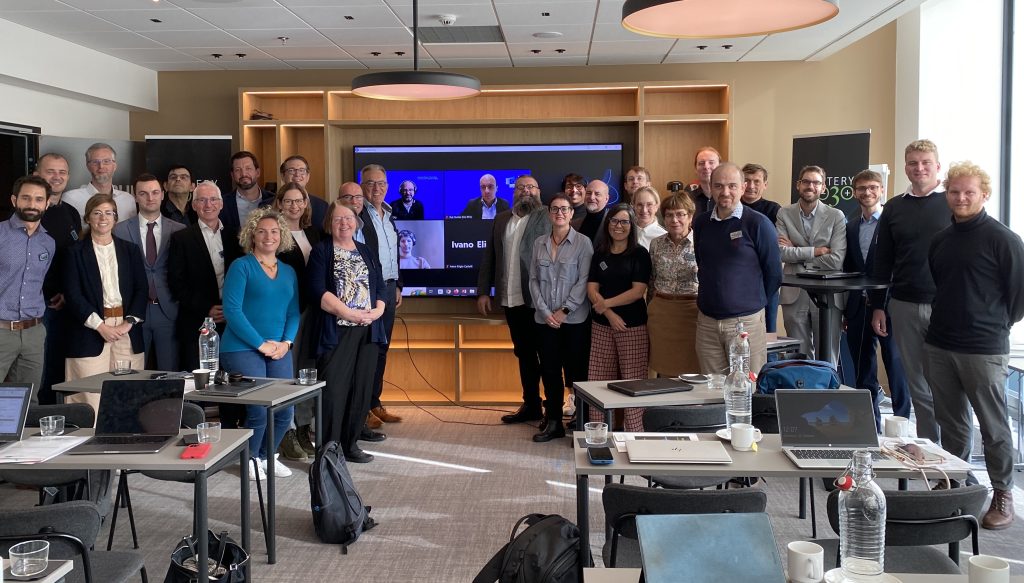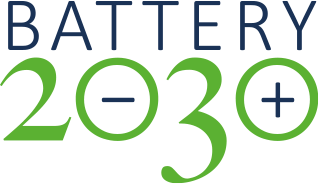
It is now five years since Battery 2030+ started, something Rui Durão policy officer for science and technology at DG RTD, mentioned in his speech at Battery 2030+ kick-off for the next phase (CSA3). Battery 2030+ can cluster similar projects to share resources and results, facilitate dissemination and communication, and be a speaking partner for Batt4EU, Batteries Europe (BE) and other stakeholders in the wider value chain, he said.
- We also expect you to speed up the work with common European ontology and standards, develop new much needed curricula in the field of batteries, Rui Durão continued and concluded by saying he regards the researchers in Battery 2030+ as explorers.
Kristina Edström, Uppsala University, continues as coordinator, and she gave a background about the activities made to support IPR, to redefine the roadmap, how we cooperate with BEPA and BE and network with relevant national and international activities etc.
Eibar Jeol Flores Cedeno, Sintef, gave a talk and cleared up the misconception that data has value only if it is tied to discovery. In reality your data can answer thousands of questions, even those you did not existed, he said. But you must be able to find it and have it in an interoperable format. Universal interoperability requires things like consistent file formats, aligned vocabulary, standards for experiments and simulations and advocated guidelines. It is a huge task to undertake, which started out in the first phase of the Battery 2030+ initiative, to be continued in the coming years.
Silvia Bodoardo, Polito, leads the work package with the duty of transforming research results to new curricula in higher education, including the digitalisation of such education. In the wider scheme it is also to support European battery industry to upscale. The Excellence seminars organized by Kristina Edström and her team are also a good way to spread scientific knowledge, she pointed out.
Bernando Abelló Garcia, the program officer, Cinea, gave lots of good hints and tips of do’s and don’ts for Horizon funded projects.
During the day different topics were brought up and discussed. Claude Chanson from Recharge underlined the importance to keep track and map the increased number of projects entering the B 2030+ community. That would enhance the ability to coordinate them precisely and facilitate the sharing and exchange of knowledge, he said. Simon Perraud, CEA, encouraged us to think of the added value for the European community – not only convince the individual projects of the benefits to cooperate with the CSA. Maybe this should be included in the Battery 2030+ roadmap said Margherita Moreno, Enea. Bernardo Abelló Garcia commented that there are other projects to reach out to as well. Christian Punckt from KIT lifted the chemistry enabling approach in the roadmap and its alignment with the European SET-plan. Since 2022, ontologies and standards are also anchored in the roadmap, he pointed out and an extension of thematic areas will probably be reflected in the next version of the roadmap; it can be things like more focus on sustainability and BMS (Battery Management Systems). Philippe Jacques, Emiri, on the other hand underlined that the purpose of B 2030+ is disruptive. We should bring something different and avoid too high TRL-levels, like the battery management systems, he claimed. Wouter Ijzermans from BEPA pointed out that several groups are looking at the battery landscape and for mapping of the international scene we should join forces with VDI/VDE and BEPA. The discussion wavered back and forth in a lively way.
